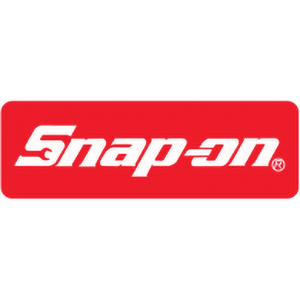Snap-on Tools manufactures and distributes premium hand tools, power tools, diagnostic equipment, and tool storage for professional technicians. The franchise provides high-quality tools and equipment through mobile stores that deliver directly to automotive repair shops and other workplaces.

Key Insights
- Snap-on Tools has a long heritage of providing high-quality tools and equipment to professional technicians and automotive repair facilities. The business has evolved from its origins by consistently innovating and adapting to the changing needs of its customers and the professional trades.
- The franchise operates through a network of mobile vans, company-owned stores, and online sales channels, ensuring widespread accessibility for its products. This multi-faceted distribution model allows for direct customer engagement and efficient product delivery.
- Snap-on Tools serves the automotive, heavy-duty vehicle, and aerospace repair industries, sectors characterized by a demand for specialized, durable, and reliable equipment. Professionals in these fields depend on the franchise for performance and productivity solutions.

Franchise Fee and Costs to Open
Exploring the financial picture of Snap-on Tools gives insight into both the upfront commitment and the potential revenue opportunity. According to FDD Item 7, opening this franchise typically involves an investment in the range of $221,751 - $500,098, along with a franchise fee of $8,000 - $16,000.
Financial Performance and Revenue
Yearly gross sales of $772,856 and estimated earnings of $77,286 - $92,743 show the potential financial performance of this franchise. These figures are crucial for prospective franchisees as they help to project revenue and profitability. They offer insight into the business's ability to generate income and can be used to compare its performance against other investment opportunities. The Franchise Payback Period of 4.7-6.7 provides an estimation of the time it might take for an owner to recover their initial investment. This metric is a key consideration for anyone evaluating the financial viability of a franchise, as it relates directly to the speed at which the business can become profitable. A shorter payback period can indicate a faster return on capital, which is a significant factor in making an informed decision about a franchise investment.
Training and Resources
Snap-on Tools provides a comprehensive initial training program for new franchisees. This program, lasting approximately six weeks, is conducted at Snap-on's corporate training facilities. The franchise offers extensive resources to support business launch and ongoing operations. Franchises are equipped with tools and materials to build their businesses effectively.
Legal Considerations
Legal considerations for a Snap-on Tools franchisee are outlined in the Franchise Disclosure Document (FDD) and the Franchise Agreement. Note that this franchise discloses lawsuits and/or bankruptcy information in its FDD, which may impact your evaluation. Subscribe now to access more details and be sure to consult a qualified attorney before proceeding.
Challenges and Risks
Operating a franchise similar to Snap-on Tools presents considerations for potential franchisees. Navigating existing local competition from other tool suppliers requires a focused strategy. The model's operational complexity, including inventory management and mobile sales, demands dedicated attention. Dependence on specific, established supply chains for product availability is a key factor to evaluate for consistent service.



